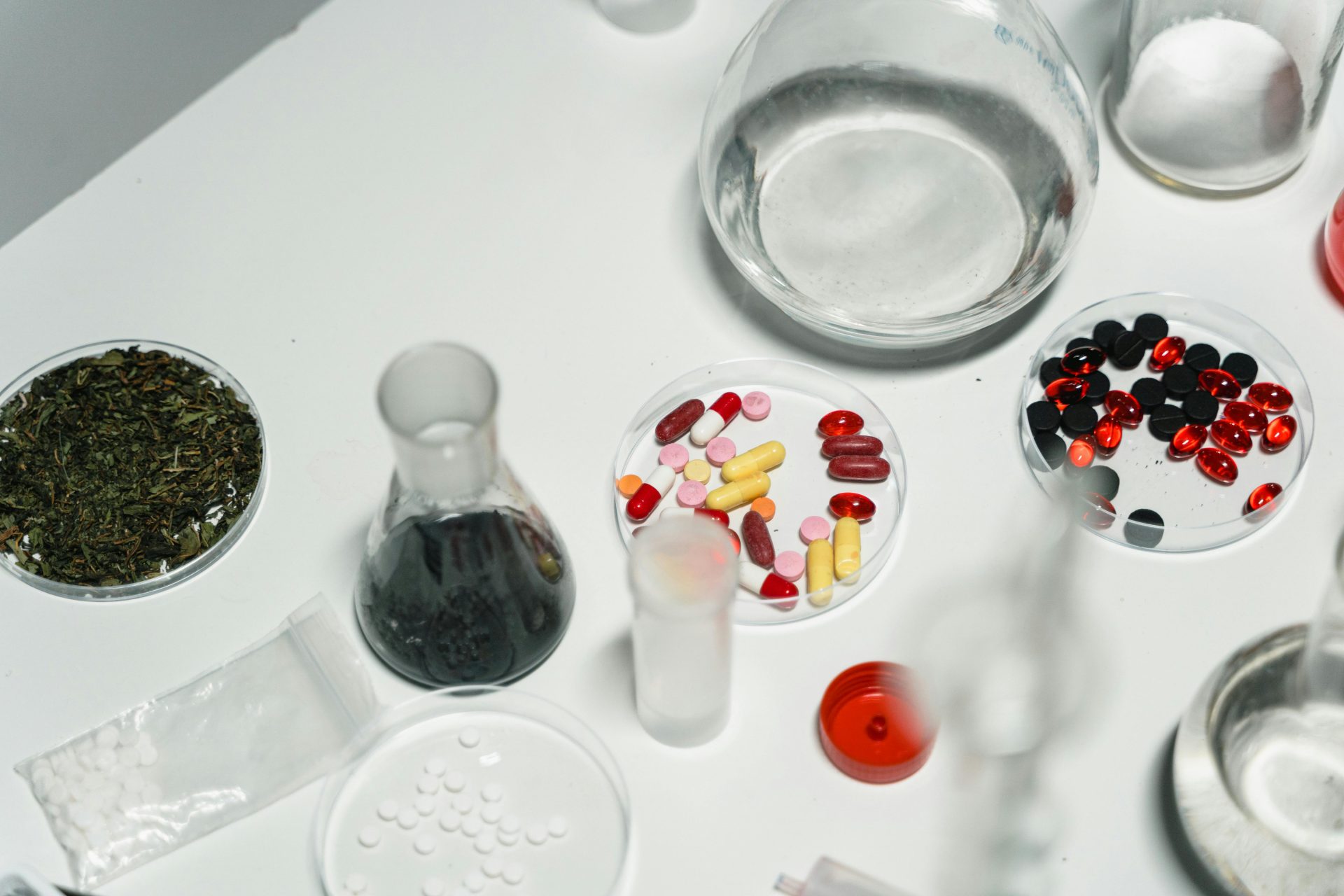
Medical cannabis can be highly beneficial, but it’s essential to be aware of potential interactions when combining it with prescription drugs. Understanding these interactions is key to maximizing cannabis’s benefits while ensuring safety. In this guide, we’ll examine how cannabis affects certain prescriptions and the importance of consulting your doctor when using both.
Drug interactions occur when one substance affects how another functions in the body, potentially leading to heightened side effects, reduced effectiveness, or even severe health risks. Cannabis primarily interacts with other medications through the liver enzymes CYP3A4 and CYP2C9. These enzymes break down many drugs, affecting how substances are absorbed, metabolized, and excreted. When cannabis inhibits or induces these enzymes, it can cause specific medications—especially those for heart health, mental health, and immune response—to become too potent or less effective, depending on the interaction.
For example, blood thinners like warfarin may become more concentrated, raising bleeding risks. Meanwhile, for respiratory issues, medications like theophylline might metabolize too quickly, reducing their therapeutic effect. Patients with chronic or critical health conditions should consult their healthcare providers about cannabis use to ensure safe medication management and avoid adverse effects.
Below are 10 commonly prescribed medications known to interact with cannabis, each with unique risks to consider.
Warfarin, a blood thinner, prevents clots but can interact with Tetrahydrocannabinol and Cannabidiol, increasing bleeding risk. Cannabis impacts the metabolism of Warfarin, potentially causing elevated drug levels in the body and raising the chances of dangerous bleeding. Regular International Normalized Ratio (INR) monitoring and communication with your doctor are critical if you’re using cannabis while on Warfarin.
Valproate, often prescribed for seizures, bipolar disorder, and migraines, can have enhanced effects when mixed with CBD. This heightened interaction may strain the liver, especially at higher doses. Patients should avoid combining these without close medical supervision due to the increased risk of liver complications.
Used to treat respiratory diseases like asthma, Theophylline interacts with cannabis in ways that may lower its effectiveness, particularly when cannabis is smoked. THC speeds up the breakdown of Theophylline, potentially reducing symptom control. Vaporizing or using edibles may reduce this effect, but speak to a physician for tailored advice.
A medication often used for severe epilepsy, Clobazam can interact with CBD, significantly amplifying sedative effects. Cannabis users may experience excessive drowsiness and slowed mental function. Close monitoring by a doctor can help adjust doses to balance efficacy and safety.
Buprenorphine-based medications like Suboxone are often used in addiction recovery but can lead to serious side effects when combined with cannabis. Risks include respiratory depression, sedation, and potential relapse if cannabis weakens the medication’s effects. Patients should avoid combining these without medical oversight.
Cannabis, especially high-THC strains, may amplify side effects from SSRIs like Fluoxetine (Prozac) and Sertraline (Zoloft), leading to increased drowsiness, dizziness, and even worsening of depression symptoms. Combining cannabis with antidepressants requires careful management by a healthcare provider.
Seroquel (Quetiapine), used for bipolar disorder, can become more sedative when used alongside cannabis, potentially impairing cognitive and motor functions. Patients should avoid cannabis if they require clear mental function or engage in activities needing full alertness.
Tacrolimus, an immunosuppressant for organ transplant patients, can be impacted by CBD, which raises Tacrolimus levels, increasing toxicity risk. Cannabis users should notify their doctors if prescribed Tacrolimus, as monitoring and dose adjustments may be needed to avoid adverse effects.
Ketoconazole, an antifungal medication, can double THC and CBD levels, potentially intensifying effects like sedation and psychoactivity. Patients using this medication should avoid cannabis or opt for very low doses under medical guidance.
A common antibiotic for tuberculosis, Rifampin, can reduce THC levels by up to 20% and CBD by 60%, which may lower cannabis’s effectiveness. Users may feel a reduced therapeutic effect, so consult a physician for potential dosage adjustments.
Absolutely. Informing your doctor about cannabis use is essential to ensure safe and effective medication management. Doctors need to know if a patient is using cannabis to anticipate and mitigate possible drug interactions, as cannabis can impact the effectiveness and safety of certain medications. For patients uncomfortable discussing cannabis with their primary physician, it’s wise to consult a cannabis-friendly doctor who can provide expert guidance on combining cannabis with other treatments. Veriheal offers connections to qualified professionals who understand both the therapeutic benefits and interactions of cannabis.
Balancing medical cannabis with prescription drugs requires an understanding of possible interactions and a commitment to open communication with healthcare providers. Whether you’re managing pain, mental health, or chronic conditions, ensuring that cannabis and prescription medications don’t conflict is crucial. Veriheal offers resources and support to help you navigate these choices safely and effectively.
Smoking can alter the metabolism of some medications, particularly those processed by the liver. It’s best to consult with a healthcare provider to determine safe cannabis use alongside prescription medications.
CBD interacts with many medications by slowing down liver enzymes, which can amplify or diminish drug effects. Always discuss CBD use with your doctor to prevent adverse interactions.
While edibles don’t directly restrict blood flow, certain medications like blood thinners may interact with cannabis and impact circulation. Always check with a healthcare provider when combining edibles with other treatments.
Note: The content on this page is for informational purposes only and is not intended to be professional medical advice. Do not attempt to self-diagnose or prescribe treatment based on the information provided. Always consult a physician before making any decision on the treatment of a medical condition.
No Information on MarijuanaDoctors.Com should be used to diagnose, treat, prevent or cure any disease or condition. You can view our Full Disclaimer here.